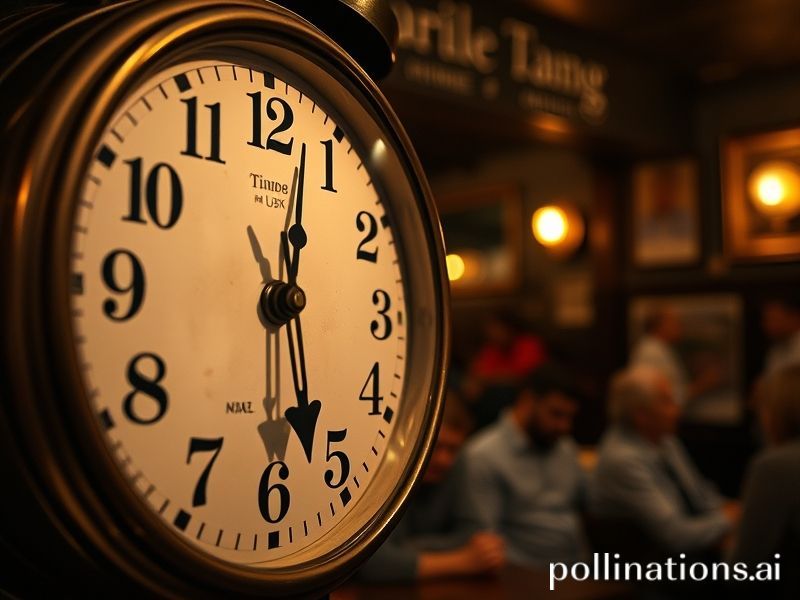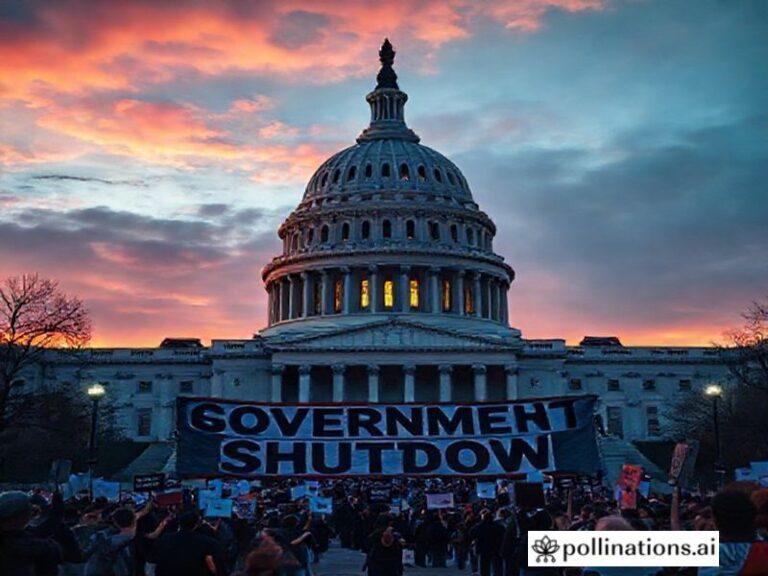Spring Forward, Fall Back, Yawn Globally: The UK’s Time Change Drama That’s Got the World Talking
**Title: “Spring Forward, Fall Back, Yawn Globally: The UK’s Time Change Drama That’s Got the World Talking”**
Alright, folks, buckle up! We’re diving headfirst into the whirlwind of the UK’s time change saga, a topic that’s been setting the internet ablaze with debates, memes, and more yawns than a marathon of ASMR videos. So, why is the world suddenly obsessed with the UK’s tinkering with the clock? Let’s break it down, shall we?
**The Plot Thickens: What’s the Fuss About?**
The UK’s time change, or “British Summer Time” (BST) as the locals call it, is a biannual event where clocks are adjusted by an hour. In March, we “spring forward,” and in October, we “fall back.” Sounds simple, right? Well, not quite. The UK government has been toying with the idea of scrapping this time-honored tradition, and the internet has been watching like a soap opera addict glued to their screen.
**Cultural Context: A Tale as Old as Time (Pun Intended)**
The time change debate isn’t just about losing an hour of sleep or gaining an extra one. It’s a cultural phenomenon that taps into the very fabric of society. The UK’s relationship with time is as complex as a Shakespearean plot. From the Victorian obsession with punctuality to the modern-day struggle of balancing work-life in a 24/7 world, time is more than just a number on a clock.
The idea of scrapping the time change is rooted in practicality. Proponents argue that it would simplify life, reduce confusion, and even save energy. Critics, however, fear it could disrupt natural rhythms, affect farming, and throw the nation’s beloved pub culture into chaos. After all, who wants to enjoy a pint in the dark?
**Social Impact: The Internet Weighs In**
The internet, being the global watercooler it is, has been buzzing with opinions. Memes about confused cows and disgruntled Brits have flooded social media, highlighting the absurdity and relatability of the situation. People from all corners of the globe are chiming in, sharing their own time change horror stories and offering advice.
The debate has also sparked discussions about work-life balance, mental health, and even the environment. It’s a reminder that even something as seemingly trivial as changing the clock can have far-reaching implications.
**Why Should You Care?**
You might be thinking, “I’m not British, why should I care about the UK’s time change?” Well, my friend, the significance of this topic goes beyond borders. It’s a microcosm of a larger global conversation about how we manage our time, energy, and resources.
Moreover, the UK’s decision could set a precedent for other countries. If the UK scraps the time change, will others follow suit? And what would that mean for international business, travel, and communication? It’s a domino effect that could reshape our global clock.
**Conclusion: Time Waits for No One (But Maybe the UK Will)**
In the end, the UK’s time change drama is more than just a headline. It’s a reflection of our collective relationship with time, a testament to the power of the internet in shaping global discourse, and a reminder that even the smallest changes can have significant ripple effects.
So, whether you’re a time change enthusiast or a clock-setting skeptic, one thing is clear: the world is watching, and the clock is ticking. Will the UK spring forward, fall back, or do something entirely unexpected? Only time will tell.







